
Bamako: The Heartbeat of Mali
Bamako, the bustling capital of Mali, is a city where tradition and modernity coexist in a harmonious blend. Nestled along the banks of the Niger River, Bamako offers an authentic African experience with its vibrant markets, rich cultural heritage, and dynamic music scene. The city is a gateway to exploring the diverse landscapes and cultures of Mali. The Grand Marché is the city's central market, where you can immerse yourself in the daily life of Bamako's residents. Here, you will find an array of goods, from fresh produce to handmade crafts. The market is a sensory feast, with the sounds of haggling vendors, the aroma of local spices, and the colorful displays of textiles and jewelry. For a deeper understanding of Mali's history and culture, visit the National Museum of Mali. The museum houses an impressive collection of artifacts, including traditional clothing, musical instruments, and ancient manuscripts. This cultural treasure trove provides insight into the rich heritage of the Malian people. Bamako's music scene is legendary, with a variety of venues offering live performances of traditional and contemporary African music. Don't miss the chance to experience a live show at one of the city's many clubs or open-air events. The rhythms of Bamako are sure to captivate and inspire you. Nature lovers will appreciate the city's Botanical Gardens and the nearby Parc National du Mali, where you can escape the urban hustle and enjoy a peaceful retreat. The park is home to a diverse range of flora and fauna, making it a perfect spot for a leisurely stroll or a picnic. Bamako's unique blend of culture, history, and natural beauty makes it a must-visit destination for any traveler looking to experience the true essence of Mali.
Local tips in Bamako
- Visit the Grand Marché early in the morning to avoid the crowds and get the best selection of goods.
- Carry small denominations of the local currency, CFA francs, for easier transactions in markets and local shops.
- Hire a local guide when visiting historical sites for a more informative and enriching experience.
- Try the local cuisine, especially dishes like jollof rice and grilled fish, at street food stalls for an authentic taste of Bamako.
- Stay hydrated and use sun protection, as Bamako can get quite hot, especially during the dry season.
Neighbourhoods in Bamako
Bamako: The Heartbeat of Mali
Bamako, the bustling capital of Mali, is a city where tradition and modernity coexist in a harmonious blend. Nestled along the banks of the Niger River, Bamako offers an authentic African experience with its vibrant markets, rich cultural heritage, and dynamic music scene. The city is a gateway to exploring the diverse landscapes and cultures of Mali. The Grand Marché is the city's central market, where you can immerse yourself in the daily life of Bamako's residents. Here, you will find an array of goods, from fresh produce to handmade crafts. The market is a sensory feast, with the sounds of haggling vendors, the aroma of local spices, and the colorful displays of textiles and jewelry. For a deeper understanding of Mali's history and culture, visit the National Museum of Mali. The museum houses an impressive collection of artifacts, including traditional clothing, musical instruments, and ancient manuscripts. This cultural treasure trove provides insight into the rich heritage of the Malian people. Bamako's music scene is legendary, with a variety of venues offering live performances of traditional and contemporary African music. Don't miss the chance to experience a live show at one of the city's many clubs or open-air events. The rhythms of Bamako are sure to captivate and inspire you. Nature lovers will appreciate the city's Botanical Gardens and the nearby Parc National du Mali, where you can escape the urban hustle and enjoy a peaceful retreat. The park is home to a diverse range of flora and fauna, making it a perfect spot for a leisurely stroll or a picnic. Bamako's unique blend of culture, history, and natural beauty makes it a must-visit destination for any traveler looking to experience the true essence of Mali.
When is the best time to go to Bamako?
Iconic landmarks you can’t miss
26th of March Stadium
Experience the heart of Malian sports and culture at Stade du 26 Mars, Bamako's iconic stadium and a symbol of national pride.
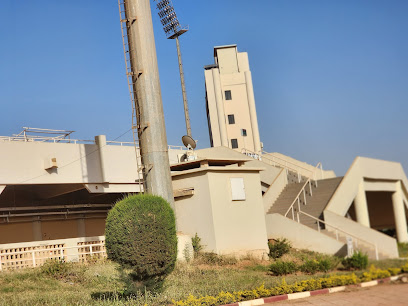
Tower Of Africa
Discover African unity and heritage at Bamako's iconic Tower of Africa, offering panoramic city views and cultural insights.
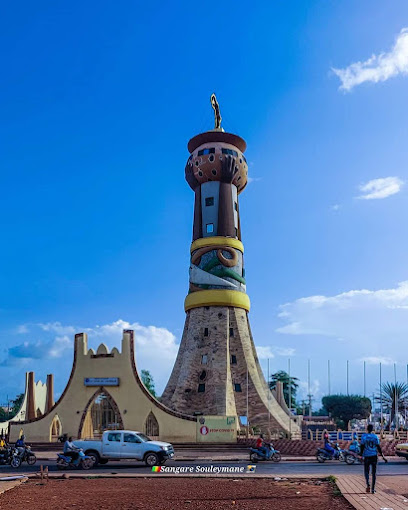
Les Halles de Bamako
Experience the vibrant culture of Bamako at Les Halles, a bustling market filled with local goods, traditional foods, and the heart of Malian life.
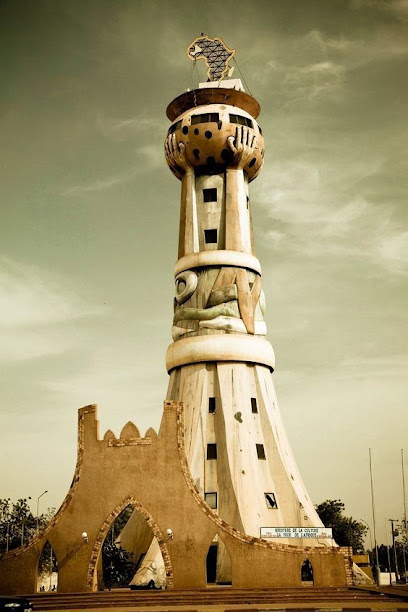
Mali National Park.
Discover Bamako's green heart: Explore nature, culture, and recreation at the revitalized Mali National Park, a refreshing escape for all.
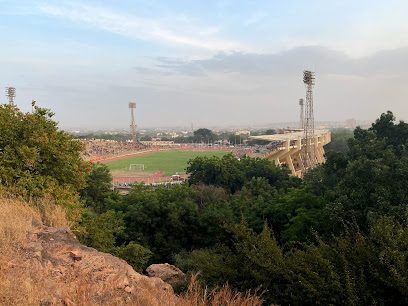
Grande Mosquée de Bamako
Discover Bamako's iconic mosque, a blend of Saudi Arabian architecture and Malian Islamic heritage, near the bustling Grand Marché.
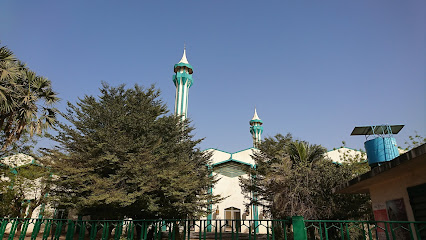
ZOO NATIONAL DU MALI
Discover Mali's wildlife at ZOO NATIONAL DU MALI in Bamako, a sanctuary for conservation, education, and family fun.
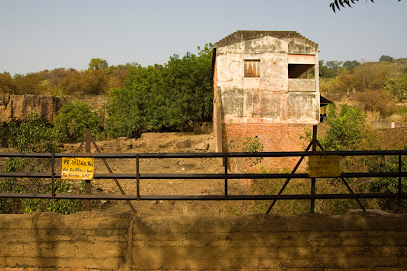
Magic Cinéma
Experience the magic of cinema in Bamako with international blockbusters and local Malian films at Magic Cinéma.
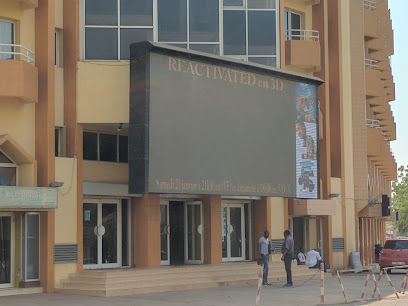
National Museum
Discover Mali's rich cultural heritage at the National Museum in Bamako, showcasing art, history, and traditions.
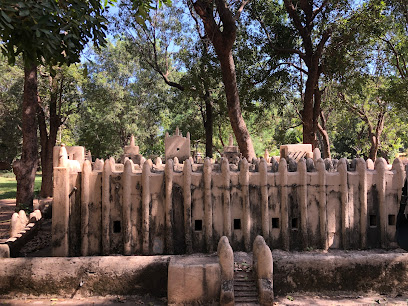
Centre International de Conferences de Bamako (CICB)
Experience culture and diplomacy at Bamako's premier conference center, hosting international events and exhibitions in a modern architectural setting.
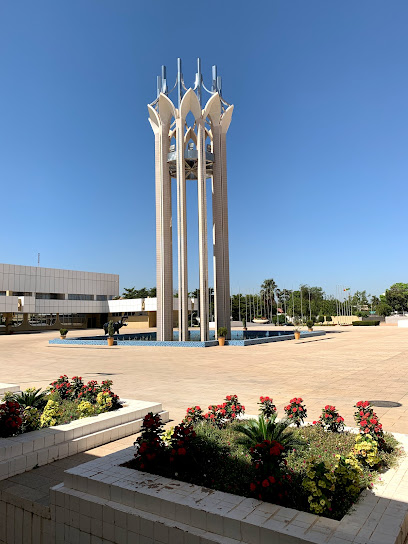
Modibo Keita Sports Stadium
Experience the vibrant sporting culture of Bamako at the Modibo Keita Sports Stadium, a landmark of Malian pride and community spirit.
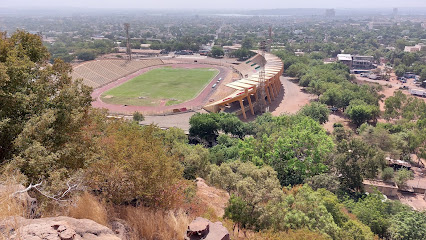
Monument of Independence
Discover the Monument of Independence in Bamako, a symbol of Mali's freedom, resilience, and cultural heritage. A landmark of national pride.
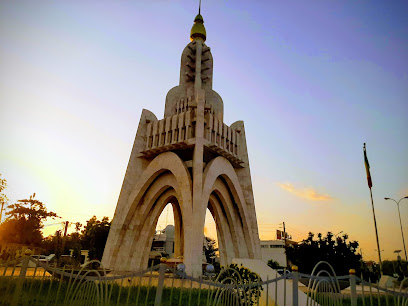
LE SAVANA
A Bamako dining and entertainment institution with diverse cuisine, lively music, and a welcoming atmosphere for locals and tourists alike.
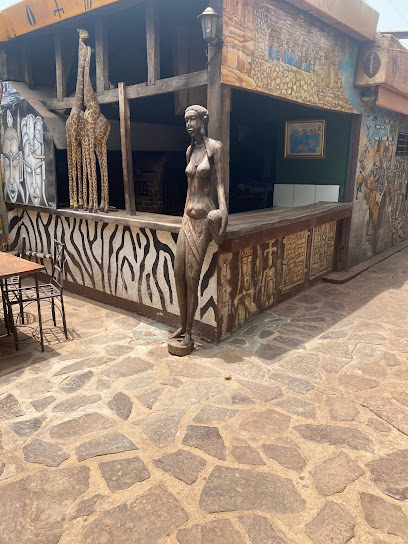
Marché de Fadjiguila
Experience the vibrant culture of Bamako at Marché de Fadjiguila, a bustling marketplace with local crafts, flavors, and authentic Malian life.
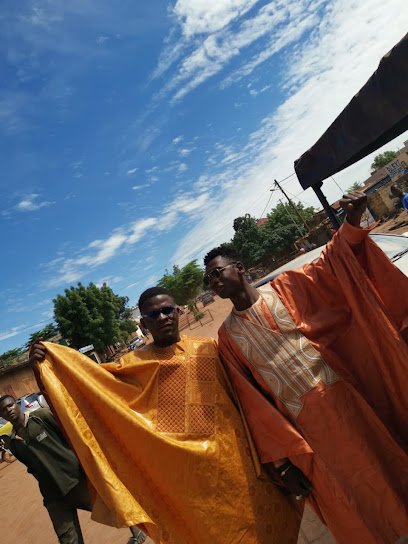
Villa Soudan
Experience authentic Malian hospitality at Villa Soudan, a tranquil oasis in Bamako's Badalabougou, offering comfort, culture, and serene views.
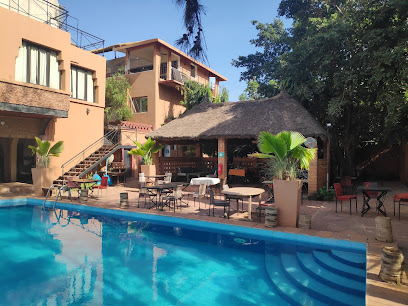
Yacouba Guindo Mosque
Discover the Yacouba Guindo Mosque in Bamako, a serene sanctuary showcasing Mali's Islamic art and cultural heritage.
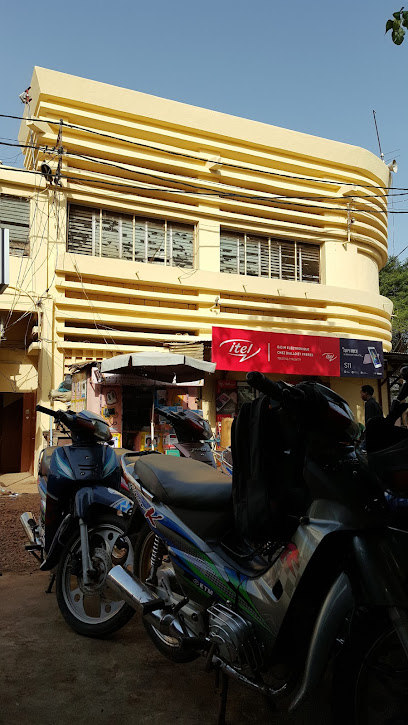
Unmissable attractions to see
Tower Of Africa
Explore the Tower of Africa in Bamako, a heritage museum symbolizing unity and diversity, offering breathtaking views and cultural experiences for every traveler.
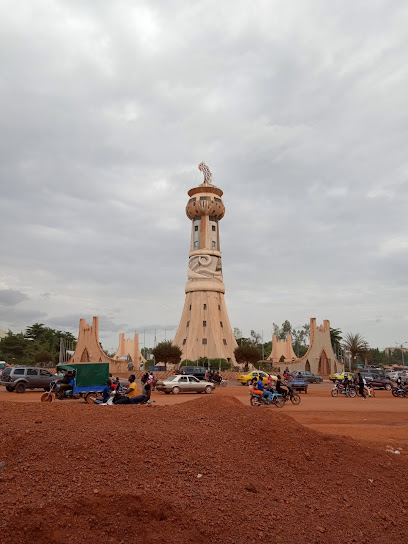
Mali National Park.
Explore the diverse ecosystems and breathtaking landscapes of Mali National Park, a natural haven near Bamako that captivates every nature lover.
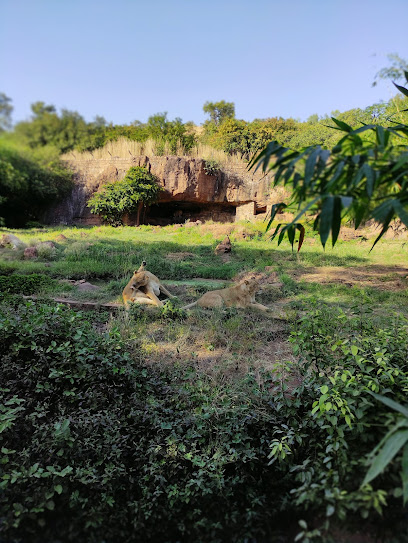
Grande Mosquée de Bamako
Explore the Grande Mosquée de Bamako, Mali's largest mosque, where architectural beauty meets cultural spirituality in the heart of Bamako.
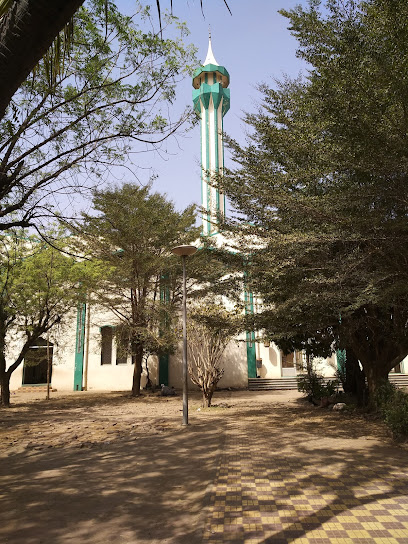
ZOO NATIONAL DU MALI
Discover the wildlife wonders at Zoo National du Mali, a family-friendly destination in Bamako featuring diverse species and engaging exhibits.
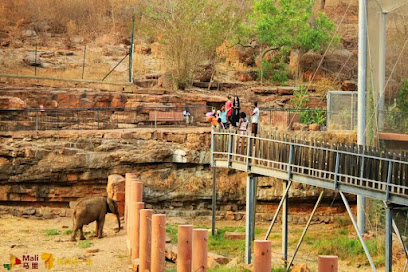
National Museum
Discover the vibrant history and rich culture of Mali at the National Museum of Bamako, a must-visit destination for every traveler.
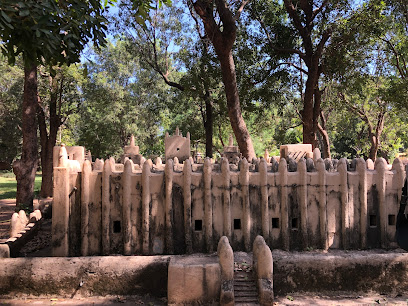
Place du Cinquantenaire
Explore the stunning Place du Cinquantenaire, a vibrant cultural hub in Bamako showcasing rich history, beautiful architecture, and local events.
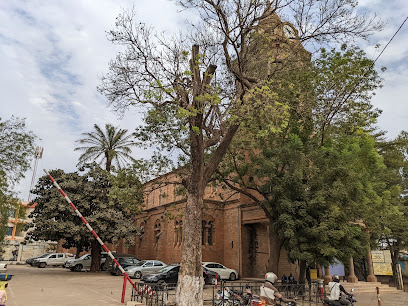
Monument of Independence
Explore the Monument of Independence in Bamako, a powerful symbol of Mali's cultural heritage and resilience, surrounded by vibrant gardens and local life.
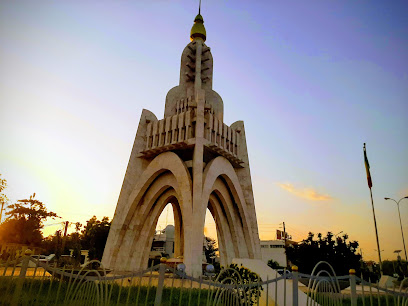
Yacouba Guindo Mosque
Discover the serene beauty of Yacouba Guindo Mosque in Bamako, a cultural gem that embodies the spirit of Mali's rich heritage.
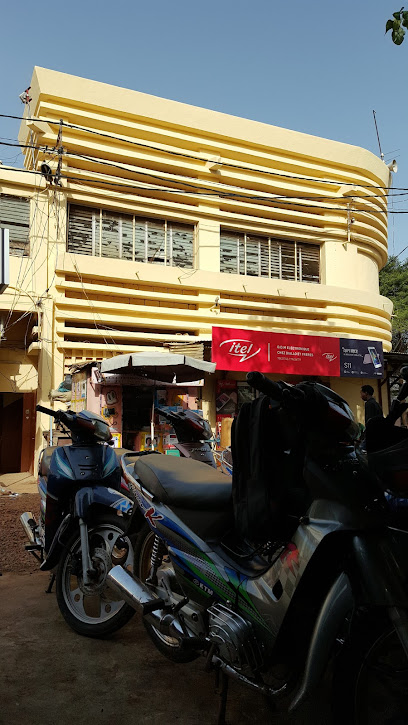
Cathedral of the Sacred Heart of Bamako
Discover the stunning Cathedral of the Sacred Heart in Bamako, a neo-Gothic masterpiece and a hub of spiritual and cultural heritage in Mali.
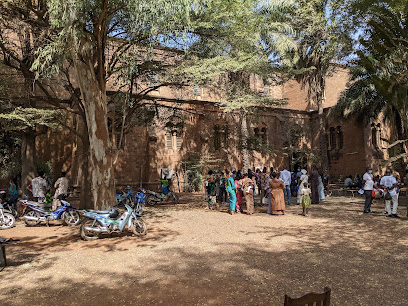
Casino de l'Amitié à Bamako
Discover the exhilarating Casino de l'Amitié in Bamako, where excitement, culture, and entertainment come together for a unique tourist experience.
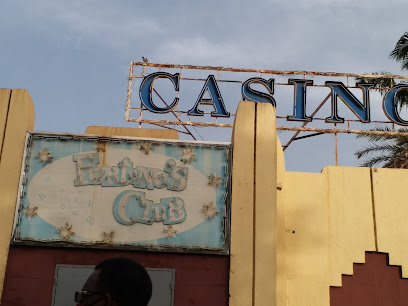
Musée de Bamako
Discover the vibrant art and rich history of Mali at the Musée de Bamako, a cultural gem in the heart of Bamako.
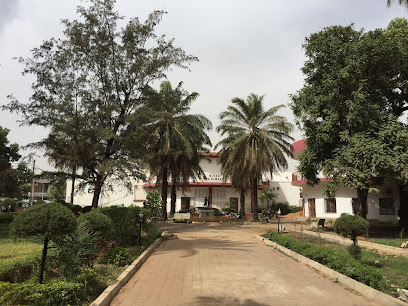
Rond-point place de la CAN
Experience the vibrant culture and rich heritage of Bamako at Rond-point Place de la CAN, a bustling hub for locals and tourists alike.
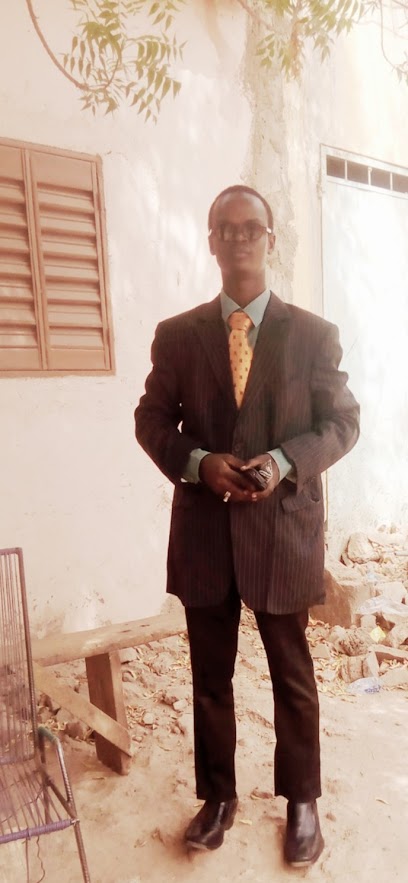
Famille Bouaré
Experience the vibrant culture and warm hospitality of Bamako at Famille Bouaré, a unique tourist attraction that connects visitors with local life.
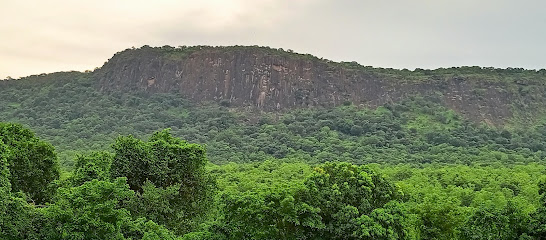
Essential places to dine
Amandine by Sel & Miel
Discover the exquisite flavors at Amandine by Sel & Miel in Bamako – where every pastry tells a story.
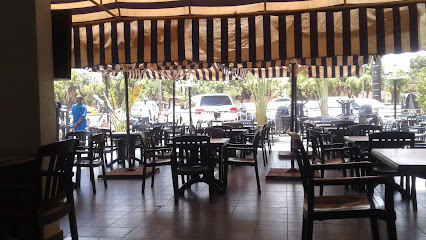
Relax
Discover Relax in Bamako: A vibrant restaurant offering delicious local and international cuisine in a welcoming atmosphere.
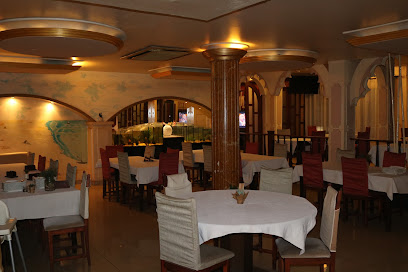
Bamako Kitchen
Experience authentic Malian cuisine at Bamako Kitchen—where local flavors meet warm hospitality in the heart of Bamako.
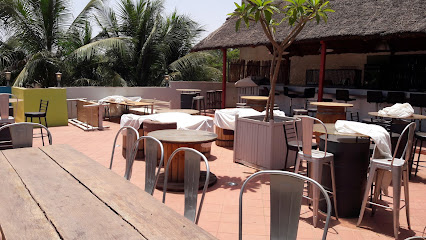
LE SAVANA
Discover Le Savana: A vibrant restaurant and bar in Bamako offering delicious local and international cuisine amidst lively ambiance.
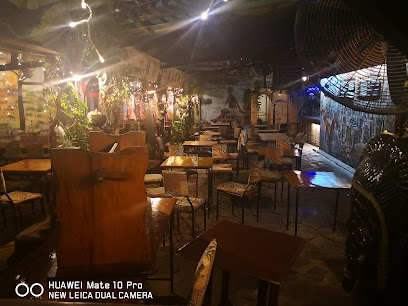
Au bord de l'eau
Experience authentic Malian cuisine at Au bord de l'eau while enjoying breathtaking waterfront views in Bamako's Sébénikoro neighborhood.
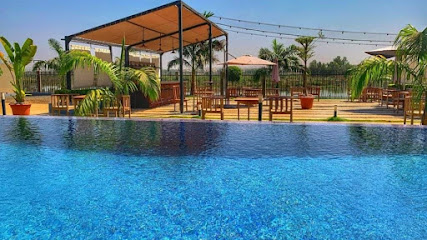
Restaurant Guaduman
Discover authentic Malian cuisine at Restaurant Guaduman in Bamako – where flavor meets culture in a warm atmosphere.
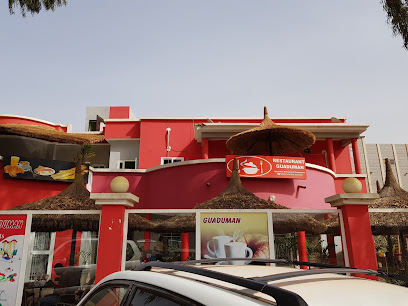
Resto Bafing
Discover authentic Malian flavors at Resto Bafing in Bamako – where every dish tells a story.
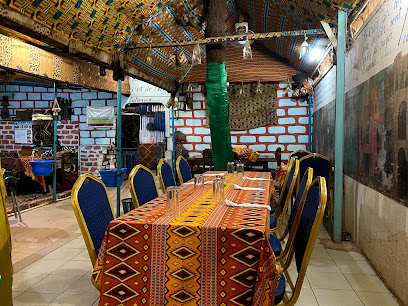
Annapurna indian Restaurant
Discover authentic Indian flavors at Annapurna Restaurant in Bamako – where every meal is a celebration of taste and tradition.
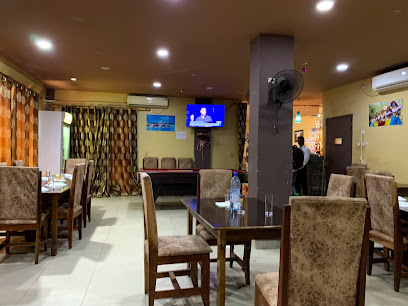
Soukhothai by Siam
Discover authentic Thai flavors at Soukhothai by Siam in Bamako - a culinary journey through Thailand's rich cuisine awaits you!
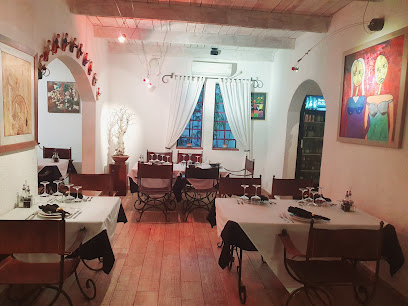
Mr. K's Burger
Experience the best burgers in Bamako at Mr. K's Burger – where flavor meets affordability in a vibrant setting.
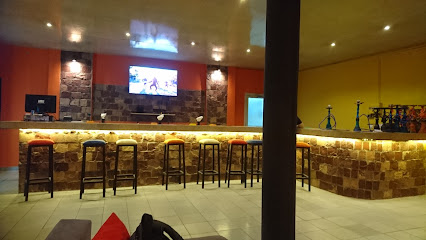
Chez Thierry
Experience authentic Malian cuisine at Chez Thierry - a culinary gem in Bamako with traditional flavors and a welcoming atmosphere.
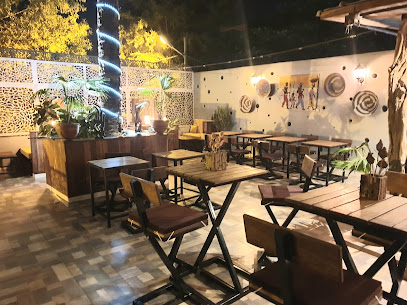
Appaloosa
Discover the vibrant culinary scene at Appaloosa, where delicious Malian dishes meet lively entertainment in Bamako's heart.
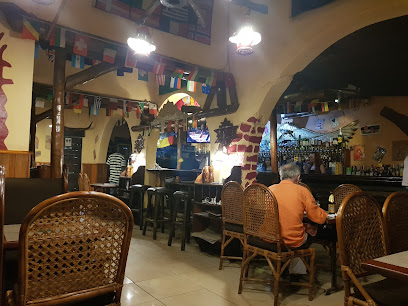
La Bel Epoc
Experience the vibrant flavors of Mali at La Bel Epoc in Bamako – where tradition meets modern dining in a lively setting.
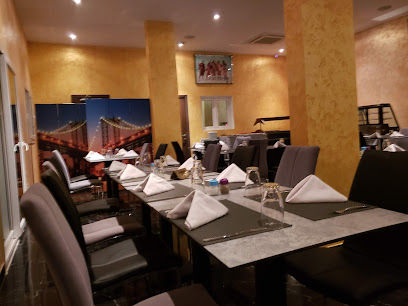
Chich House Bamako
Discover authentic Malian flavors at Chich House Bamako – your go-to halal restaurant in Mali's vibrant capital.
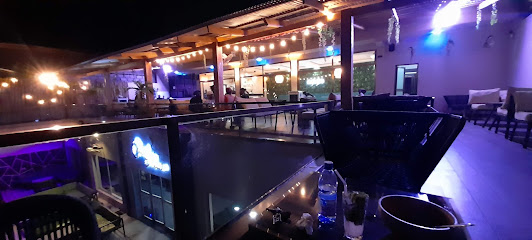
La Table De Lima
Experience authentic Malian cuisine at La Table De Lima in Bamako – where tradition meets taste in every dish.
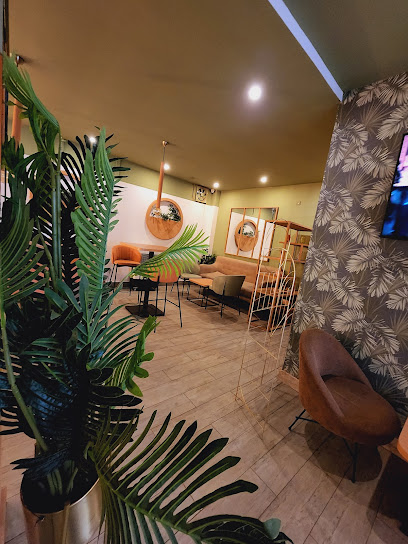
Markets, malls and hidden boutiques
Artisanat Bamako Mali
Explore the vibrant Artisanat Bamako, a cultural shopping hub in Mali offering exquisite handcrafted goods and a taste of local artistry.

Mali Chic
Discover the vibrant fashion of Mali at Mali Chic, where local artistry meets contemporary style in the heart of Bamako.
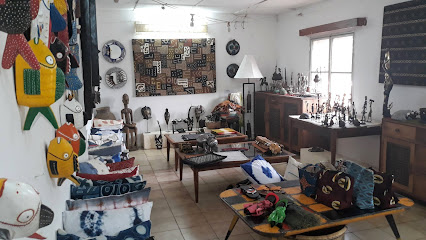
Toure Shop Bamako
Discover unique handcrafted accessories at Toure Shop Bamako, where vibrant Malian culture meets modern fashion.
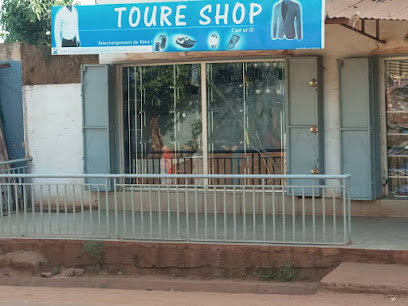
Galaxy fashion
Experience the vibrant fashion scene at Galaxy Fashion in Bamako, where local culture meets contemporary style.
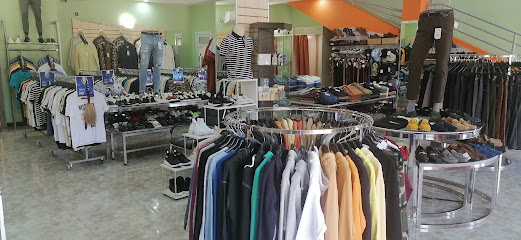
Boutique du Maroc
Experience the vibrant culinary culture of Mali at Boutique du Maroc, a charming grocery store in Bamako offering local and international delights.
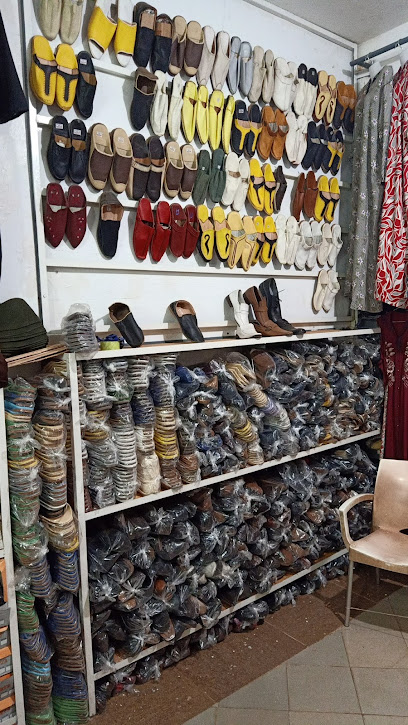
Le Vendeur
Explore Le Vendeur in Bamako for an unforgettable shopping experience filled with local culture, fashion, and delicious cuisine.
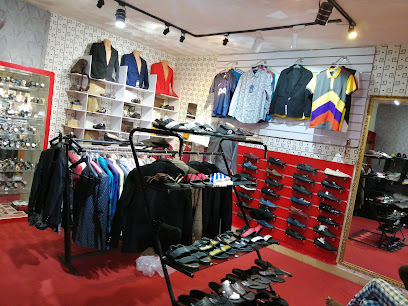
Infinix Mali Boutique Officiel
Explore the latest smart technology and stylish accessories at Infinix Mali Boutique, a premier shopping destination in the heart of Bamako.
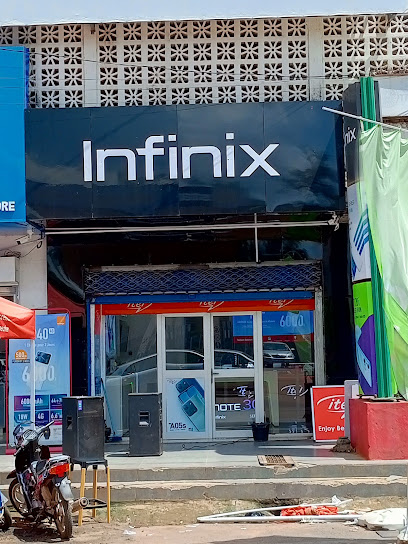
Inaz Concept Store
Explore the Inaz Concept Store in Bamako for unique clothing, accessories, and home goods that reflect Mali's rich culture and craftsmanship.
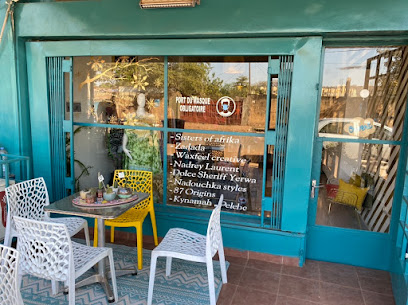
Dram's Store
Explore Dram's Store in Bamako for unique fashion accessories that showcase the rich culture and craftsmanship of Mali.

Boutique n City chope bko Mali boutique
Explore unique men's fashion at Boutique n City Chope Bko, where contemporary style meets traditional Malian craftsmanship in the heart of Bamako.
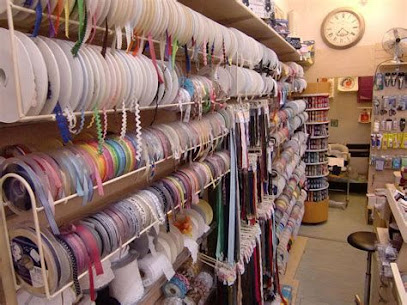
BOUTIQUE BKOSS BAMAKO
Explore the essence of Malian fashion at Boutique BKOSS Bamako, where local craftsmanship meets contemporary style, perfect for any traveler.
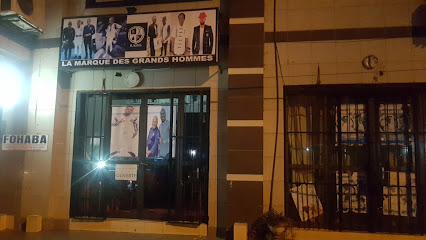
Style Shop
Discover unique Malian fashion at Style Shop in Bamako, where contemporary styles meet traditional craftsmanship in an unforgettable shopping experience.
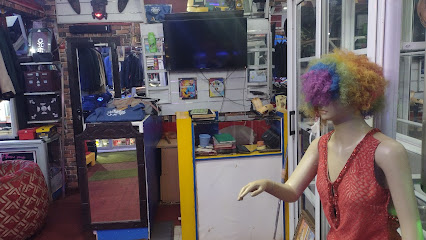
Lili Shopping
Explore Lili Shopping in Bamako for unique women's clothing that blends local culture with contemporary fashion trends.
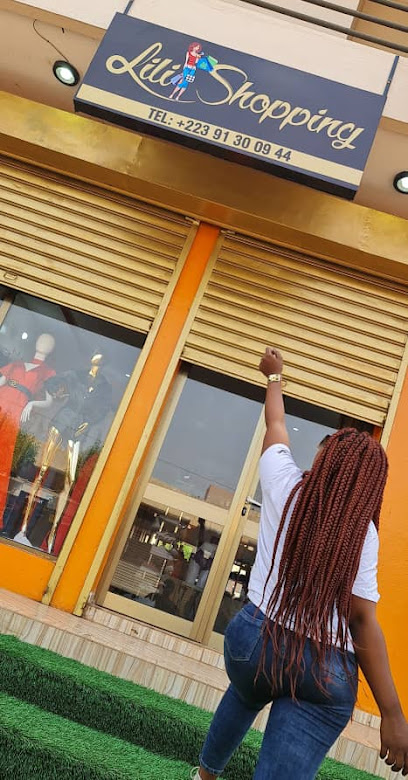
Perfect Surprise
Explore Bamako's Perfect Surprise for unique, locally crafted gifts that embody the vibrant culture and artistry of Mali.

Daradji Style
Explore Daradji Style in Bamako for authentic Malian handicrafts and unique gifts that embody the spirit of Mali's rich cultural heritage.

Essential bars & hidden hideouts
B Lounge
Experience the vibrant nightlife of Bamako at B Lounge, a stylish sanctuary for relaxation and socializing in Mali's bustling capital.
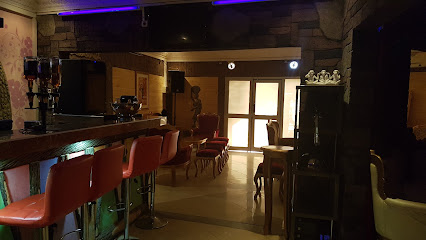
Bla Bla Bar
Discover the lively ambiance of Bla Bla Bar in Bamako, where local culture and vibrant nightlife come together for an unforgettable experience.
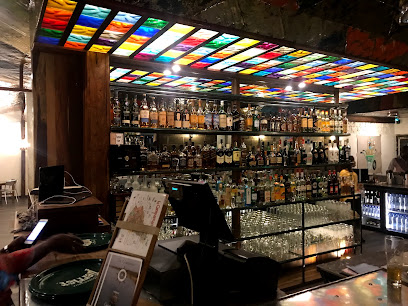
Le Celtic
Discover the vibrant flavors of Malian cuisine at Le Celtic, Bamako's premier grill restaurant, where every meal is a celebration of culture.
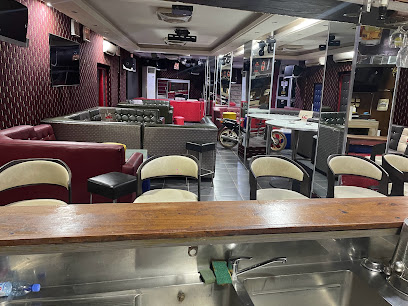
Fouta Bar Vip
Experience the vibrant nightlife of Bamako at Fouta Bar Vip, where local culture meets lively entertainment and refreshing drinks.
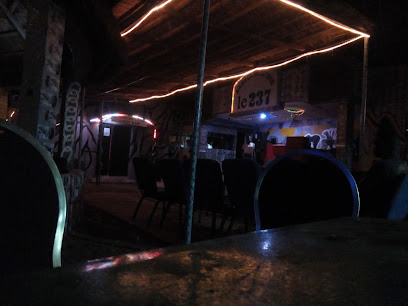
Le Pub Bar
Experience the vibrant nightlife of Bamako at Le Pub Bar, where local culture meets international flair in a lively, welcoming atmosphere.
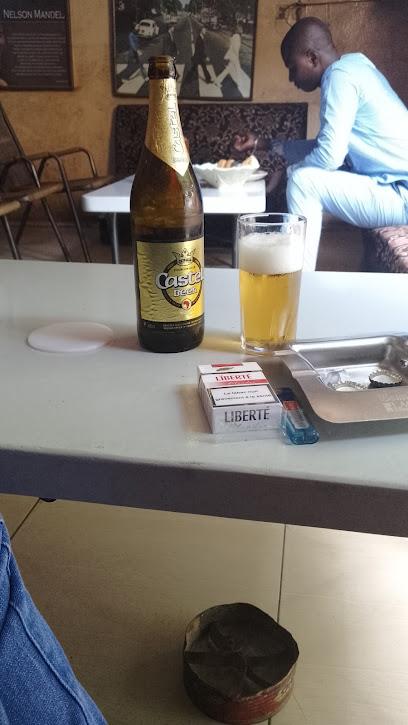
Bar Benkadi
Experience the vibrant atmosphere of Bar Benkadi in Bamako, where culture and refreshment come together in an unforgettable setting.

Eclipse Rooftop
Experience the enchanting views and vibrant nightlife at Eclipse Rooftop, Bamako's premier lounge for social gatherings and exquisite cocktails.
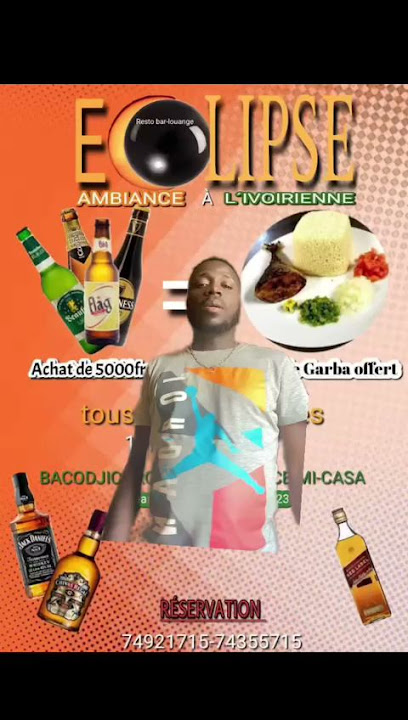
Huqqa
Discover Huqqa, Bamako's vibrant bar offering a unique blend of local drinks and lively atmosphere, perfect for tourists and locals alike.
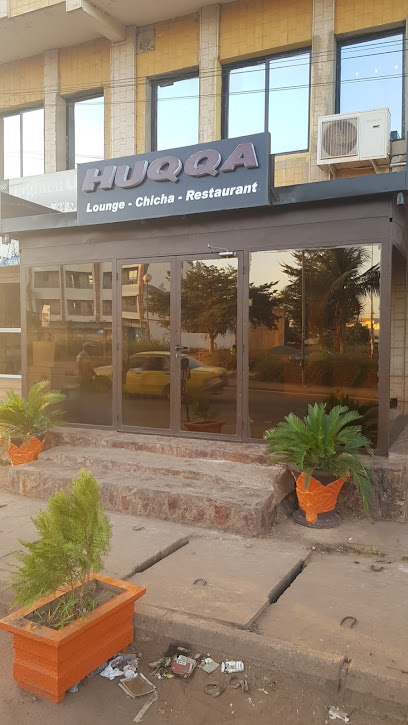
Marina bar restaurant
Discover the lively Marina Bar Restaurant, where local flavors and refreshing drinks blend in the heart of Bamako's vibrant culture.

BLACK AND WHITE (Bar-Café)
Experience the vibrant culture of Bamako at Black and White Bar-Café, where local flavors meet modern ambiance for unforgettable moments.
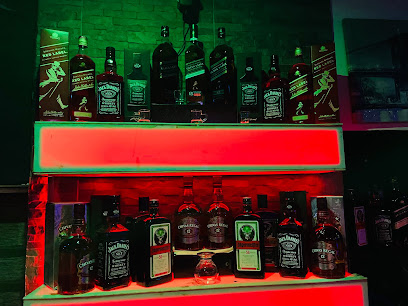
BISSAP CAFÉ
Discover the vibrant Bissap Café in Bamako, a cultural hotspot for locals and tourists to enjoy refreshing drinks and live music.
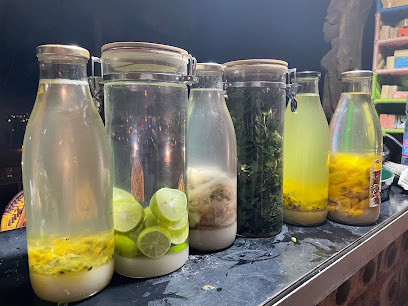
ESCOBAR LOUNGE
Discover Bamako's nightlife at Escobar Lounge, a vibrant bar with great music, refreshing drinks, and a friendly atmosphere.
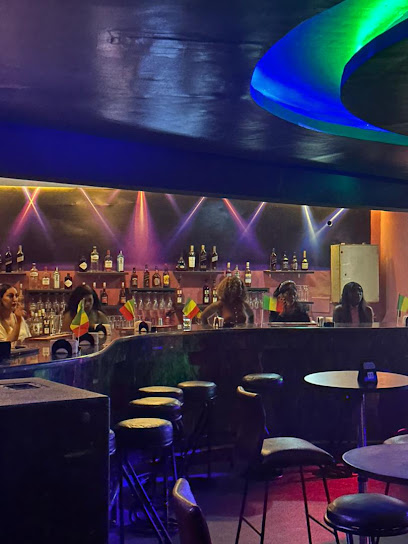
Fazenda
Discover the vibrant nightlife of Bamako at Fazenda, a local bar offering a unique blend of culture and entertainment for tourists and locals alike.

Baguineda
Discover the vibrant nightlife of Bamako at Baguineda, a lively bar offering local drinks and a welcoming atmosphere for all visitors.
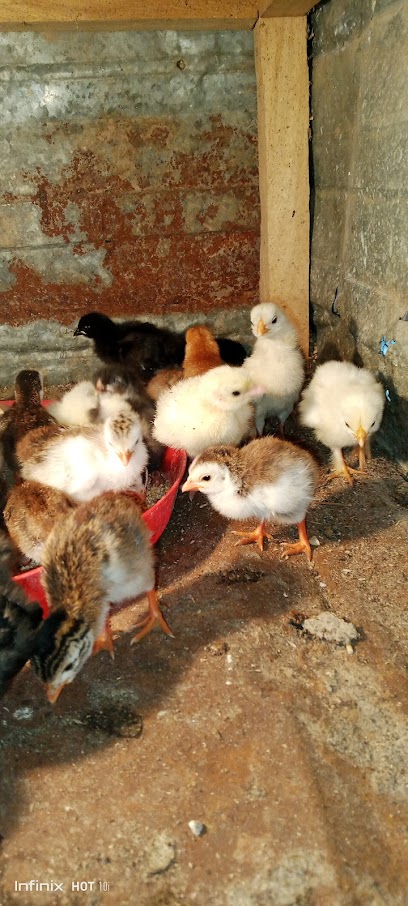
Travel experiences inspired by this city
Explore more travel diariesLocal Phrases
-
- HelloKɔnɔn
[Ko-nohn] - GoodbyeI kɛnɛ
[Eh keh-neh] - YesI
[Ee] - NoA yɛrɛ
[Ah yeh-reh] - Please/You're welcomeI ni ce
[Ee nee cheh] - Thank youI dɔgɔ
[Ee doh-goh] - Excuse me/SorryKɔ ma fɔ
[Ko mah foh] - How are you?I ka kɔ tɔgɔ?
[Ee kah koh toh-goh?] - Fine. And you?N tɔgɔ. I tɔgɔ ka kɔ?
[N toh-goh. Ee toh-goh kah koh?] - Do you speak English?I bɛ a ye Angilifu ka kɔ?
[Ee beh ah yeh Ahn-gee-lee-foo kah koh?] - I don't understandA tɔgɔ bɛ
[Ah toh-goh beh]
- HelloKɔnɔn
-
- I'd like to see the menu, pleaseMɔgɔ bɛ a ka kɔ i ga̱n, i ni ce
[Moh-goh beh ah kah koh ee gah-nyee nee cheh] - I don't eat meatA ka tɔgɔ chɔrɔ
[Ah kah toh-goh choh-roh] - Cheers!Awa
[Ah-wah] - I would like to pay, pleaseMɔgɔ bɛ a tɔgɔ, i ni ce
[Moh-goh beh ah toh-goh ee nee cheh]
- I'd like to see the menu, pleaseMɔgɔ bɛ a ka kɔ i ga̱n, i ni ce
-
- Help!Sɔrɔ
[Soh-roh] - Go away!Sɔrɔ
[Soh-roh] - Call the Police!I bɛ denw ka sɔrɔ
[Ee beh dehnw kah soh-roh] - Call a doctor!I bɛ denw ka ɲɔgɔn
[Ee beh dehnw kah nyoh-gohn] - I'm lostA min bi tɔgɔ
[Ah meen bee toh-goh] - I'm illA min tɔgɔ
[Ah meen toh-goh]
- Help!Sɔrɔ
-
- I'd like to buy...Mɔgɔ bɛ la
[Moh-goh beh lah] - I'm just lookingA min bɔ
[Ah meen boh] - How much is it?I ka barika?
[Ee kah bah-ree-kah?] - That's too expensiveI tɔgɔ fɔ yɛrɛ
[Ee toh-goh foh yeh-reh] - Can you lower the price?I ka kɔwɔrɔ fɔ barika?
[Ee kah koh-woh-roh foh bah-ree-kah?]
- I'd like to buy...Mɔgɔ bɛ la
-
- What time is it?I ka bɛra ka kɔ tɔgɔ?
[Ee kah beh-rah kah koh toh-goh?] - It's one o'clockKa tɔgɔ bɛra
[Kah toh-goh beh-rah] - Half past (10)Ni jan
[Nee jahn] - MorningKa tɔgɔ
[Kah toh-goh] - AfternoonKa dugu
[Kah doo-goo] - EveningKa tɔgɔ
[Kah toh-goh] - YesterdayKa kɔ
[Kah koh] - TodayKa tɔgɔ
[Kah toh-goh] - TomorrowKa sabu
[Kah sah-boo] - 1Kelen
[Keh-lehn] - 2Filan
[Fee-lahn] - 3Saba
[Sah-bah] - 4Nin
[Neen] - 5Lɛmɛ
[Lay-may] - 6Worodugu
[Woh-roh-doo-goo] - 7Karɔ
[Kah-roh] - 8Sɔlɔ
[Sohl-oh] - 9Saba
[Sah-bah] - 10Wɔrɔ
[Woh-roh]
- What time is it?I ka bɛra ka kɔ tɔgɔ?
-
- Where's a/the...?Kɔnɔ sɔrɔ?
[Ko-noh soh-roh?] - What's the address?I ka kɔnɔn sɔrɔ?
[Ee kah koh-nohn soh-roh?] - Can you show me (on the map)?I ka bɛ tɛnɛ ka ka tɔrɔ (sɛnɛ ka)?
[Ee kah beh teh-neh kah kah toh-roh (seh-neh kah)?] - When's the next (bus)?I ka bɛra ka kɔnɔn (buɛgu)?
[Ee kah beh-rah kah koh-nohn (boo-eh-goo)?] - A ticket (to ....)Nkɛlɛ (min ....)
[Nkeh-leh (meen ....)]
- Where's a/the...?Kɔnɔ sɔrɔ?
History of Bamako
-
Bamako, the capital city of Mali, has ancient roots dating back to the prehistoric era. Archeological findings suggest that the area was inhabited by humans as early as 1500 BC. The fertile lands along the Niger River provided sustenance and facilitated the growth of early agricultural communities.
-
During the 13th and 14th centuries, Bamako was part of the Mali Empire, one of the most powerful and wealthy empires in West Africa. The empire's capital was at Niani, but Bamako served as an important trading hub due to its strategic location along the Niger River. The city became a melting pot of cultures, languages, and religions as traders and scholars from various regions converged here.
-
In the late 19th century, French colonial forces began to establish control over the region. Bamako was officially founded in 1883 by the French explorer and military officer Joseph-Simon Gallieni. The French colonial administration developed the city as a center for administration and trade, constructing infrastructure such as roads, railways, and public buildings.
-
Mali gained independence from France on September 22, 1960. Bamako was designated the capital of the new Republic of Mali. Since then, the city has undergone significant urbanization and modernization. It has grown into a bustling metropolis, home to numerous governmental institutions, cultural landmarks, educational establishments, and a vibrant arts and music scene.
-
Bamako is a cultural epicenter in Mali, known for its rich traditions in music, dance, and crafts. The city hosts several cultural festivals, including the renowned Festival on the Niger, which celebrates Malian music and arts. Bamako’s markets, such as the Grand Marché, are vibrant places where one can experience the diversity of Malian culture through its crafts, textiles, and cuisine.
-
Today, Bamako faces numerous challenges, including rapid urbanization, infrastructure deficits, and socio-economic inequalities. Despite these challenges, the city continues to thrive and adapt, maintaining its cultural heritage while striving for development and modernization.
Bamako Essentials
-
Bamako is accessible via the Modibo Keita International Airport, located approximately 15 kilometers from the city center. Several international airlines operate flights to and from Bamako, connecting it with major cities in Africa, Europe, and the Middle East. Alternatively, you can reach Bamako by road from neighboring countries like Senegal and Burkina Faso. Long-distance bus services and private taxis are available but ensure to check the current safety advisories before traveling by road.
-
Within Bamako, transportation options include taxis, minibuses (known locally as 'Sotramas'), and motorbikes. Taxis are generally affordable but make sure to negotiate the fare before starting your journey. Sotramas are a popular and inexpensive way to get around, although they can be crowded. For a more local experience, motorbike taxis are available, but always wear a helmet. Car rentals are also available for those who prefer to drive.
-
The official currency in Mali is the West African CFA Franc (XOF). Credit cards are accepted in some hotels, restaurants, and high-end shops, but cash is preferred, especially in local markets and smaller establishments. ATMs are available in Bamako, but it is advisable to carry sufficient cash. Currency exchange services are available at the airport, banks, and some hotels.
-
Bamako is generally safe for tourists, but it's important to remain cautious. Avoid walking alone at night and be aware of your surroundings. High-crime areas include parts of Badalabougou and Magnambougou. Petty theft, such as pickpocketing, can occur in crowded places like markets and public transport hubs. Keep your belongings secure and avoid displaying valuable items.
-
In case of emergency, dial 17 for police assistance and 15 for medical emergencies. Bamako has several hospitals and clinics, including the Gabriel Touré Hospital. It is recommended to have travel insurance that covers medical emergencies. For minor health issues, pharmacies are readily available across the city.
-
Fashion: Do dress modestly; women should avoid wearing revealing clothing. Religion: Do respect local customs and traditions; remove your shoes when entering mosques. Public Transport: Do be patient and respectful; Sotramas can be crowded. Greetings: Do greet people with a handshake, and use 'Bonjour' or 'Bonsoir' depending on the time of day. Eating & Drinking: Do try local dishes like 'Tô' and 'Jollof Rice'. Don't eat with your left hand, as it is considered impolite.
-
To experience Bamako like a local, visit the bustling markets such as the Grand Marché, where you can buy local crafts and produce. Engage with locals, who are often friendly and willing to share stories about their culture and history. Don't miss the National Museum of Mali and the Bamako Artisan Market for a taste of local art and craftsmanship. For a unique experience, take a boat ride on the Niger River at sunset.
Trending Landmark in Bamako
-
26th of March Stadium
-
Tower Of Africa
-
Les Halles de Bamako
-
Mali National Park.
-
Grande Mosquée de Bamako
-
ZOO NATIONAL DU MALI
-
Magic Cinéma
-
National Museum
-
Centre International de Conferences de Bamako (CICB)
-
Modibo Keita Sports Stadium
-
Monument of Independence
-
LE SAVANA
-
Marché de Fadjiguila
-
Villa Soudan
-
Yacouba Guindo Mosque
Nearby Cities to Bamako
-
Things To Do in Faranah
-
Things To Do in Bobo-Dioulasso
-
Things To Do in Dédougou
-
Things To Do in Voinjama
-
Things To Do in Sanniquellie
-
Things To Do in Ganta
-
Things To Do in Magburaka
-
Things To Do in Ouahigouya
-
Things To Do in Koudougou
-
Things To Do in Kenema
-
Things To Do in Gbarnga
-
Things To Do in Daloa
-
Things To Do in Wa
-
Things To Do in Port Loko
-
Things To Do in Ouagadougou

















